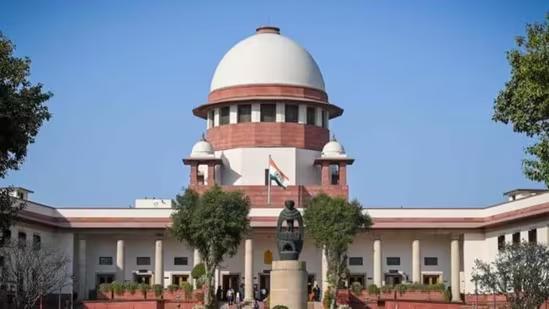
Title: Court can’t grant assent to bills, only Guv & Prez can: Maha to SC
In a recent development in the Indian political landscape, the Maharashtra government has argued in the Supreme Court that courts cannot accord assent to bills and only the Governor and President have the power to do so. This statement was made by senior advocate Harish Salve, who was representing the Maharashtra government during the hearing of a presidential reference on whether the court could impose timelines for the Governor and President to deal with bills passed by state Assemblies.
The presidential reference was filed by the Centre, seeking the Supreme Court’s guidance on whether the court could issue directions to the Governor and President to act on bills passed by state Assemblies within a specified timeframe. The Centre’s move was seen as an attempt to streamline the process of governance and ensure that bills are not stalled by the Governor or President.
However, the Maharashtra government has taken a strong stance against the Centre’s move, arguing that the court cannot grant assent to bills and that only the Governor and President have the constitutional power to do so. Salve, who was representing the Maharashtra government, submitted that the court’s role is limited to interpreting the Constitution and that it cannot usurp the powers of the executive.
Salve’s argument is based on the constitutional provision that the President and Governor have the power to grant assent to bills passed by the state Assemblies. According to the Constitution, the President has the power to assent to bills passed by the Lok Sabha, while the Governor has the power to assent to bills passed by the state Assemblies. The court, on the other hand, has the limited role of interpreting the Constitution and ensuring that the laws passed by the legislature are in conformity with the Constitution.
Salve also argued that the court’s interference in the legislative process would undermine the separation of powers between the executive, legislature, and judiciary. He submitted that the court’s role is limited to ensuring that the laws passed by the legislature are in conformity with the Constitution, and that it cannot usurp the powers of the executive.
The Maharashtra government’s argument has been supported by several constitutional experts, who have reiterated that the court cannot grant assent to bills and that only the Governor and President have the constitutional power to do so. According to these experts, the court’s role is limited to interpreting the Constitution and ensuring that the laws passed by the legislature are in conformity with the Constitution.
On the other hand, the Centre has argued that the court has the power to issue directions to the Governor and President to act on bills passed by state Assemblies within a specified timeframe. The Centre’s move is seen as an attempt to streamline the process of governance and ensure that bills are not stalled by the Governor or President.
The Centre’s argument is based on the constitutional provision that the court has the power to issue directions to the executive to ensure that the laws are implemented in accordance with the Constitution. According to the Centre, the court’s power to issue directions is not limited to the sphere of executive action, but also includes the sphere of legislative action.
The Centre’s argument has been supported by several legal experts, who have reiterated that the court has the power to issue directions to the Governor and President to act on bills passed by state Assemblies within a specified timeframe. According to these experts, the court’s power to issue directions is not limited to the sphere of executive action, but also includes the sphere of legislative action.
The hearing on the presidential reference is ongoing, and it is expected that the Supreme Court will deliver its verdict in the near future. The verdict is expected to have far-reaching implications for the political landscape of the country, and it is likely to have an impact on the relationship between the judiciary, executive, and legislature.
In conclusion, the Maharashtra government’s argument that the court cannot grant assent to bills and that only the Governor and President have the constitutional power to do so is a significant development in the ongoing debate on the powers of the court. The argument is based on the constitutional provision that the President and Governor have the power to grant assent to bills passed by the state Assemblies, and that the court’s role is limited to interpreting the Constitution and ensuring that the laws passed by the legislature are in conformity with the Constitution.
Source:






